Featured
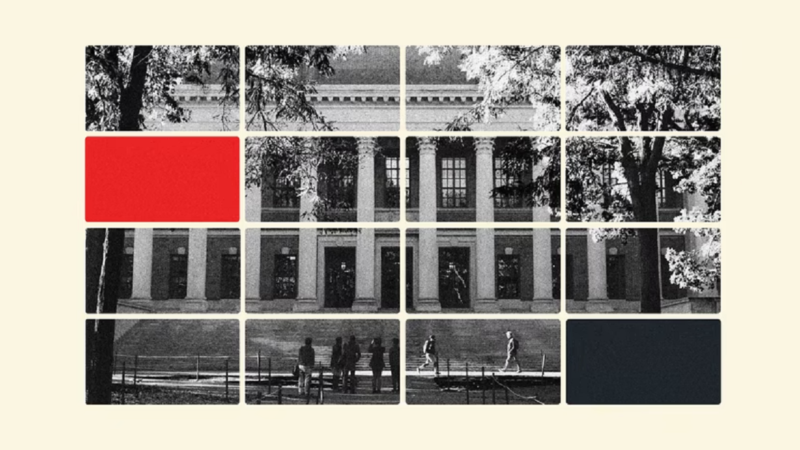 The College-Admissions Merit Myth. By Adam Harris / The Atlantic
The College-Admissions Merit Myth. By Adam Harris / The Atlantic
The system is not about lining people up from best to worst and taking the top ones. It’s more like a lottery, says the sociologist Natasha Warikoo.
Tomorrow, the Supreme Court will hear oral arguments in two cases that could end America’s experiment with affirmative action in higher education. The challenges to the admissions programs at Harvard and at the University of North Carolina at Chapel Hill—both brought by Students for Fair Admissions, a coalition of unnamed students assembled by the conservative legal strategist Edward Blum—argue that the institutions discriminate against Asian American students, and that eliminating the use of race in admissions would fix the problem.
In her new book, Is Affirmative Action Fair? The Myth of Equity in College Admissions, Natasha Warikoo, a sociologist at Tufts University who has spent years examining race-conscious admissions, assesses the positions of those for and against affirmative action, and argues that we’re asking the wrong questions about how students get into college. By exalting merit, Warikoo warns, Americans have developed a skewed perception of the process—a perception that leads to challenges such as the one before the Court.
I spoke with Warikoo about her book, the Supreme Court hearing, and how we can better understand admissions. Read more
Related: Is the Fourteenth Amendment Color-Blind? By Matt Ford / The New Republic
Political / Social
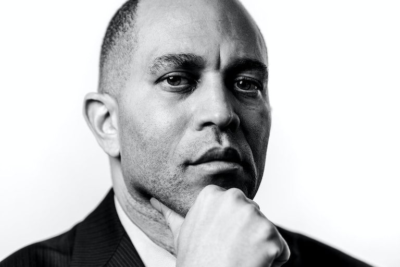 The Next Generation of House Leadership. By Felicia Wong and Michael Tomasky / The New Republic Podcast
The Next Generation of House Leadership. By Felicia Wong and Michael Tomasky / The New Republic Podcast
Hakeem Jeffries on the priorities of tomorrow’s Democratic leaders
Hakeem Jeffries, a representative for New York’s 8th congressional district, is a rising star in the Democratic Party and the likely front-runner to succeed Nancy Pelosi as House leader. He’s also quite the policy wonk, as co-hosts Felicia Wong and Michael Tomasky learn in episode six of How to Save a Country. What drives the chair of the House Democratic Caucus, and what’s his vision for the next generation of leadership? Listen here
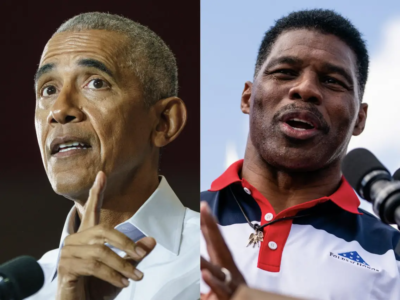 Barack Obama Mercilessly Mocks Herschel Walker With A ‘Thought Experiment.’ By Lee Moran / HuffPost
Barack Obama Mercilessly Mocks Herschel Walker With A ‘Thought Experiment.’ By Lee Moran / HuffPost
The former president also torched the Donald Trump-backed GOP candidate with a reworked version of his iconic slogan.
At a campaign rally for Walker’s Democratic rival, Sen. Raphael Warnock (D-Ga.), Obama acknowledged that Walker was “a heck of a football player” and “amazing, one of the best running backs of all time.” But that doesn’t make him the best person to represent Georgia, the former president argued. Obama imagined people seeing Walker in the airport or hospital and allowing him to fly the airplane or do surgery because of his success on the football field. “You wouldn’t say that,” said Obama. Obama said “the opposite is true, too” in that people may have liked him as a president but wouldn’t want his “slow, old, skinny behind” on the football field. “You’d have to scrape me off the field,” he cracked, before flipping his “Yes, we can” slogan to: “No, I can’t. No, I can’t.” Read more and watch here
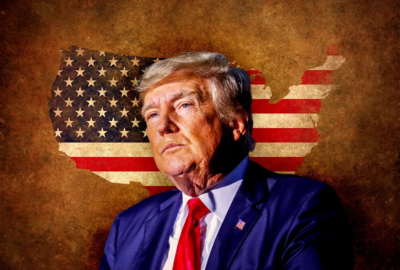 “We regret to inform you” that Donald Trump is cashing in on white America’s death wish. By Chauncey Devega / Salon
“We regret to inform you” that Donald Trump is cashing in on white America’s death wish. By Chauncey Devega / Salon
Donald Trump’s superpower: He understands white America’s impulse toward self-destruction — and mainlines it
Donald Trump is a white terrorist. This is true in both the literal sense and on a more metaphorical level. As part of Trump’s coup plot he incited his followers to attack the U.S. Capitol on Jan. 6. It’s also true that throughout his presidency and beyond, Trump and his agents have used the propaganda tactic known as “stochastic terrorism” — in which a leader encourages violence while maintaining vaguely plausible deniability. This is part of a larger pattern of behavior. Trump’s behavior and rhetoric repeatedly emphasize destruction, violence, conspiracy theories, apocalyptic imagery and threats of other dire outcomes if he and his neofascist movement are not returned to power. Read more
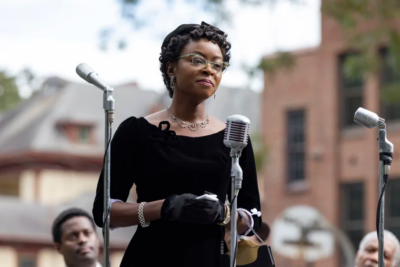 ‘We can never forget’: Till movie sparks renewed conversations about the nation’s racist past. By and
‘We can never forget’: Till movie sparks renewed conversations about the nation’s racist past. By and
Emmett Till’s tragic death in 1955 is a reminder of the “depths of ugliness” that still exists, said Eddie S. Glaude Jr., a professor at Princeton.
With the release of director Chinonye Chukwu’s “Till,” the conversation of the nation’s racist history and violence toward Black people is being revisited. The film retells the tragic story of 14-year-old Emmett Till, who was brutally abducted, beaten and killed by two white men for allegedly whistling at a white woman, Carolyn Bryant Donham, in 1955. Told through the perspective of his mother, Mamie Till-Mobley, played by actress Danielle Deadwyler, the film shows how Till’s death became a symbol of Black injustice that helped sparked the civil rights movement. Deadwyler told NBC News that the telling of Till’s story today is just as important as it was decades ago. Read more
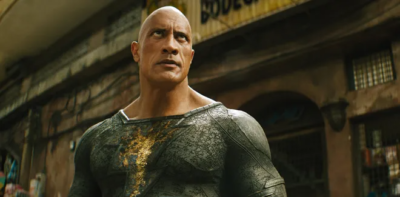 The Rock Goes Back to Black. By Lauren Michele Jackson / The New Yorker
The Rock Goes Back to Black. By Lauren Michele Jackson / The New Yorker
“Black Adam” and the slippery identities of Dwayne Johnson.
Johnson, the child of a Samoan mother and a Black father, had the skin to fit in, but he chafed at the conceit. “I wanted to be a heel in the worst way,” he would recall in his 2000 memoir, but “I wasn’t comfortable with the notion of perpetuating stereotypes.” Stepping out with his new crew for the first time, in 1997, Maivia presented himself as among but not of them, telling the crowd, “Joining the Nation wasn’t a Black thing. It wasn’t a white thing.” As his story progressed, he took from the Nation what he needed to shed Rocky Maivia and reinvent himself as the Rock, a “trail-blazin’, eyebrow-raisin’ ” cuss known for smack talk calibrated to titillate and offend. “You are all unintelligent pieces of trailer-park trash,” he spat. “Do you smell it?” Read more
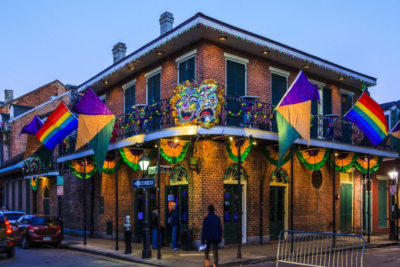 Sex, Race, and Gender in Bounce Music Culture. By Hettie Williams / AAIHS
Sex, Race, and Gender in Bounce Music Culture. By Hettie Williams / AAIHS
“We’re bouncing the whole time,” states Big Freedia—a gender non-conforming rapper and entertainer born Freddie Ross, Jr.— who is considered to be one of the key figures in the current popularization of bounce music, a sub-genre of rap. NEW ORLEANS, LA- JAN 23 2016:
For Big Freedia, bounce is about “being able to dance and be free.” Though Beyoncѐ Knowles is highly effective at commodifying the culture, as evidenced by her latest hit, “Brake My Soul,” a bounce-inspired song that includes Big Freedia’s voice on the track, she did not invent bounce music, and Cardi B did not invent twerking. Freedia, in a video titled “Big Freedia, Explains the Ins and Outs of Bounce Music,” goes on to define the genre of bounce as “up-tempo, call-and-response, heavy base, ass-shaking music.” Read more
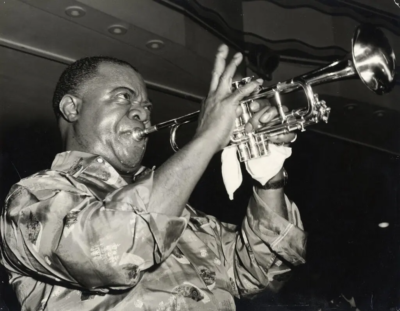 Louis Armstrong’s Black & Blues’ Review: In His Own Words. By Lisa Kennedy / NYT
Louis Armstrong’s Black & Blues’ Review: In His Own Words. By Lisa Kennedy / NYT
Personal tapes and letters bring fresh insights into the jazz great as a musician and a Black man.
In Louis Armstrong’s study in the Queens home he shared with his fourth wife, Lucille, bookshelves were filled with reel-to-reel recordings he made as a sort of audio diary. Those tapes and his letters — read by the rapper Nas — lay the foundation for the director Sacha Jenkins’s documentary “Louis Armstrong’s Black & Blues.” By foregrounding the gravel, grace and salty frankness of Armstrong’s voice, and mining an archival mother lode of audio and video interviews and clips, Jenkins delivers a bountiful portrait of one of the 20th century’s superstars — on Armstrong’s own terms. Read more
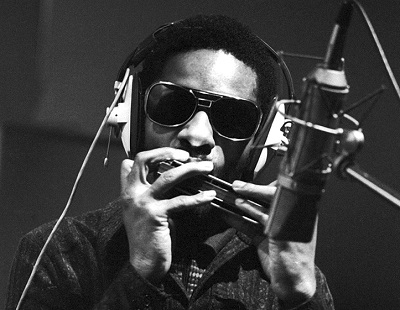 50 Years Ago, Stevie Wonder Heard the Future. NYT Staff
50 Years Ago, Stevie Wonder Heard the Future. NYT Staff
On the anniversary of the landmark 1972 album “Talking Book,” musicians who made it and artists who cherish it share their stories.
In 1972 — half a century ago — Stevie Wonder reinvented the sound of pop by embracing all he could accomplish on his own. He released two albums that year: “Music of My Mind” in March and then, less than eight months later, on Oct. 27, the even more confident and far-reaching “Talking Book.” “Talking Book” was a breakthrough on multiple fronts. It demonstrated, with the international smash “Superstition,” that Wonder didn’t need Motown’s “hit factory” methods — songwriters and producers providing material that singers would dutifully execute — to have a No. 1 pop blockbuster. Read more
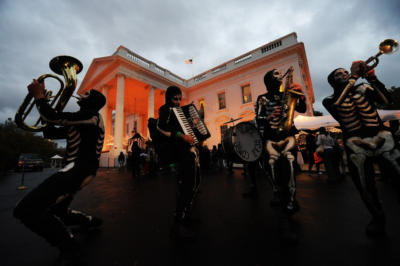 Black Music Sunday: Halloween is the the perfect time to enjoy these spooky tunes. By Denise Oliver Velez / Daily Kos
Black Music Sunday: Halloween is the the perfect time to enjoy these spooky tunes. By Denise Oliver Velez / Daily Kos
The White House is lit with orange light as a group of “skeletons” perform at the North Portico of the White House in Washington on Oct. 31, 2009.
It’s that time of year again, filled with Halloween spooks, witches, and goblins, and tricks and treats like candy corn. Unsurprisingly there are lots of tunes across Black music genres that deal with spells and spooks and witchcraft, including voodoo, hoodoo, and black cat bones. This Black Music Sunday, we’re getting into Halloween music mode, with some jazz and blues that speak to the spirits of the season. Read more and listen here
Sports
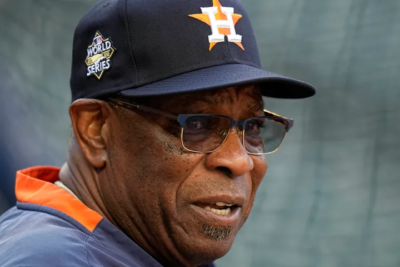 Dusty Baker Laments Lack Of US-Born Black Players In World Series. By Kristie Reiken / HuffPost
Dusty Baker Laments Lack Of US-Born Black Players In World Series. By Kristie Reiken / HuffPost
“What hurts is that I don’t know how much hope that it gives some of the young African-American kids,” the Houston Astros manager told The Associated Press.
Dusty Baker grew up watching Black stars shine in the World Series, paving his path to a life devoted to baseball. When he leads the Houston Astros in Game 1 of the World Series against the Philadelphia Phillies on Friday night, the AL and NL champions will play without any U.S.-born Black players for the first time since 1950, shortly after Jackie Robinson broke the Major League Baseball color barrier. It’s a fact that deeply disturbs the 73-year-old Baker, one of two Black MLB managers, who has spent his entire life either playing or coaching baseball. Read more
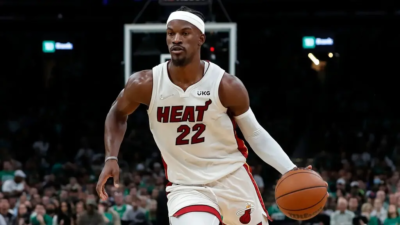 A Tough Start in Texas Turned Jimmy Butler Into an N.B.A. All-Star. By Scott Cacciola / NYT
A Tough Start in Texas Turned Jimmy Butler Into an N.B.A. All-Star. By Scott Cacciola / NYT
Butler is impossible to miss as the fiercely competitive star of the Miami Heat. But he got his start at a small junior college in Texas after bigger schools overlooked him.
At Tyler Junior College, a leafy two-year school about 100 miles southeast of Dallas, Fulce was among the teammates who came to understand how seriously Butler treated the combative art of one-on-one basketball. It was the most pure distillation of his competitive drive. “If you ask him to play one-on-one and you’re not really ready to play one-on-one with him, don’t do it,” Fulce said, “because it’ll mess up your relationship with him.” By now, Butler has cemented his reputation as one of the league’s best two-way players, a six-time All-Star with an eight-figure salary who has positioned Miami as a perennial title contender. In his spare time, he works as a global pitchman for a low-calorie beer and drinks expensive coffee. Read more
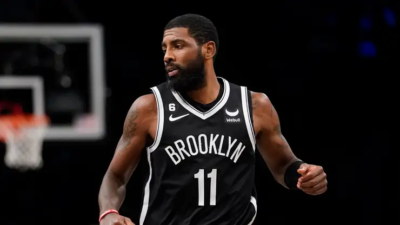 Kyrie Irving Says He’s Not Antisemitic After Tweeting Link To Controversial Movie. By Keith Reed / The Root
Kyrie Irving Says He’s Not Antisemitic After Tweeting Link To Controversial Movie. By Keith Reed / The Root
Irving on Thursday night tweeted a link to an obscure movie from 2018 based on an even more obscure book written in 2015, both of which traffic in antisemitic themes. Nets owner Joe Tsai released a statement Friday night distancing himself and the team from Irving’s Tweet, which linked to the Amazon page for a movie called “Hebrews To Negro: Wake Up Black America.”
It’s hard to put anything Irving says into meaningful context but we can’t ignore that his tweet came at the end of a week in which Kanye West’s fashion empire and personal fortune got Hulk smashed after he made, then repeatedly defended antisemitic remarks of his own. It also came on the same day that racists decided to mark Elon Musk’s purchase of Twitter by testing content moderation boundaries, flooding the site with antisemitic posts and reportedly pushing use of the n-word up 500% in 12 hours. Read more
Related: ‘I won’t stand down’: Nets’ Kyrie Irving defends post about antisemitic film. By AP and The Guardian
Site Information
Articles appearing in the Digest are archived on our home page. And at the top of this page register your email to receive notification of new editions of Race Inquiry Digest.
Click here for earlier Digests. The site is searchable by name or topic. See “search” at the top of this page.
About Race Inquiry and Race Inquiry Digest. The Digest is published on Mondays and Thursdays.
Use the customized buttons below to share the Digest in an email, or post to your Facebook, Linkedin or Twitter accounts.